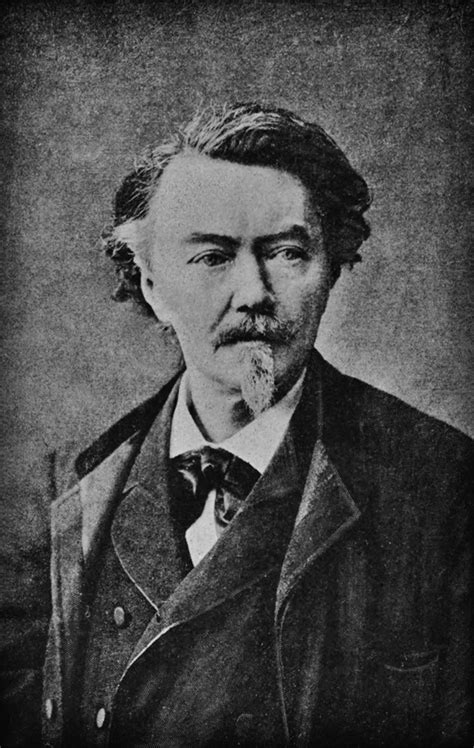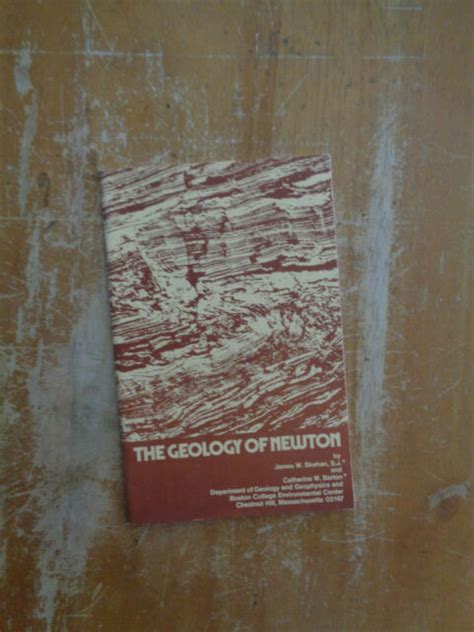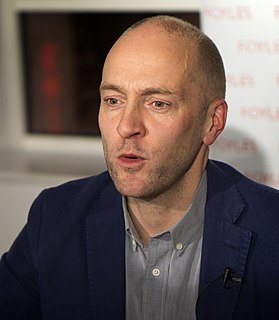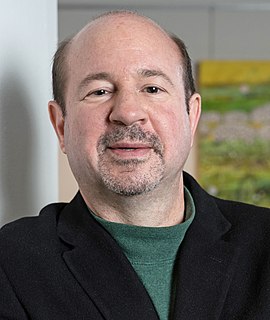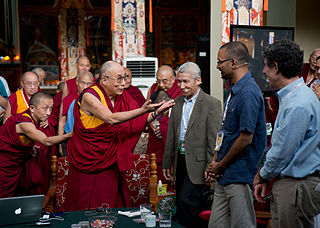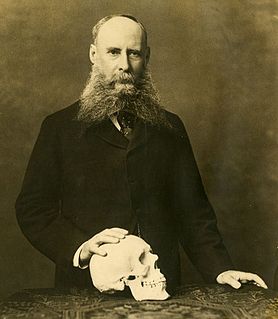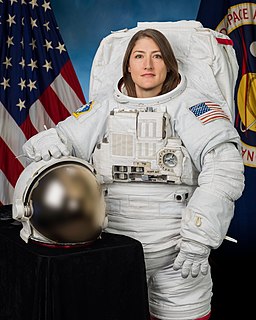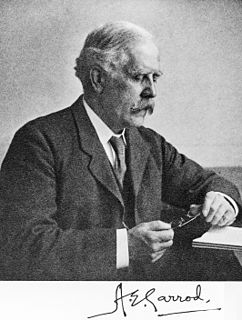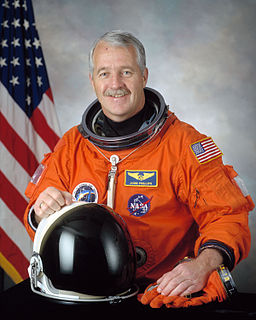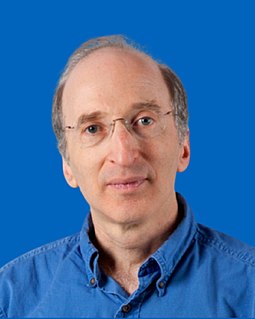Top 1200 Scientific Fact Quotes & Sayings - Page 3
Explore popular Scientific Fact quotes.
Last updated on December 21, 2024.
The Christian church has a long history of gradually absorbing scientific perspectives and new discoveries. It seems to me that, in fact, that has been one of the strengths of Christianity - it has ultimately had great flexibility in absorbing new information about the world that we get from science.
The American creationist movement has entirely bypassed the scientific forum and has concentrated instead on political lobbying and on taking its case to a fair-minded electorate... The reason for this strategy is overwhelmingly apparent: no scientific case can be made for the theories they advance.
The resolution of revolutions is selection by conflict within the scientific community of the fittest way to practice future science. The net result of a sequence of such revolutionary selections, separated by periods of normal research, is the wonderfully adapted set of instruments we call modern scientific knowledge.
It seems to me that there is a good deal of ballyhoo about scientific method. I venture to think that the people who talk most about it are the people who do least about it. Scientific method is what working scientists do, not what other people or even they themselves may say about it. No working scientist, when he plans an experiment in the laboratory, asks himself whether he is being properly scientific, nor is he interested in whatever method he may be using as method.
The fundamental characteristic of the scientific method is honesty. In dealing with any question, science asks no favors. ... I believe that constant use of the scientific method must in the end leave its impress upon him who uses it. ... A life spent in accordance with scientific teachings would be of a high order. It would practically conform to the teachings of the highest types of religion. The motives would be different, but so far as conduct is concerned the results would be practically identical.
The scientific method is the ultimate elegant explanation. It is the ultimate foundation for anything worthy of the name "explanation". It makes no sense to talk about explanations without having a process for deciding which are right and which are wrong, and in a broad sense that is what the scientific method is about. All of the other wonderful explanations celebrated here owe their origin and credibility to the process by which they are verified-the scientific method.
We have now the remarkable spectacle that just when many scientific men are agreed that there is no part of the Darwinian system that is of any great influence, and that, as a whole, the theory is not only unproved, but impossible, the ignorant, half-educated masses have acquired the idea that it is to be accepted as a fundamental fact.
Although I know of no reference to Christ ever commenting on scientific work, I do know that He said, "Ye shall know the truth, and the truth shall make you free." Thus I am certain that, were He among us today, Christ would encourage scientific research as modern man's most noble striving to comprehend and admire His Father's handiwork. The universe as revealed through scientific inquiry is the living witness that God has indeed been at work.
There is no single test or formula for producing moral progress anymore than there is for generating scientific truths. It is a process involving theoreticians, fact-gatherers, protestors, martyrs for the cause, authors of first- person narratives who change the way we see and evaluate the distribution of harms and benefits.
The great scientific achievements are research programmes which can be evaluated in terms of progressive and degenerative problemshifts; and scientific revolutions consist of one research programme superceding (overtaking in progress) another. This methodology offers a new rational reconstruction of science.
The scientific method of examining facts is not peculiar to one class of phenomena and to one class of workers; it is applicable to social as well as to physical problems, and we must carefully guard ourselves against supposing that the scientific frame of mind is a peculiarity of the professional scientist.
To an extent that undermines classical standards of science, some purported scientific results concerning 'HIV' and 'AIDS' have been handled by press releases, by disinformation, by low-quality studies, and by some suppression of information, manipulating the media and people at large. When the official scientific press does not report correctly, or obstructs views dissenting from those of the scientific establishment, it loses credibility and leaves no alternative but to find information elsewhere.
Nevertheless, scientific method is not the same as the scientific spirit. The scientific spirit does not rest content with applying that which is already known, but is a restless spirit, ever pressing forward towards the regions of the unknown, and endeavouring to lay under contribution for the special purpose in hand the knowledge acquired in all portions of the wide field of exact science. Lastly, it acts as a check, as well as a stimulus, sifting the value of the evidence, and rejecting that which is worthless, and restraining too eager flights of the imagination and too hasty conclusions.
Scientific and technological progress themselves are value-neutral. They are just very good at doing what they do. If you want to do selfish, greedy, intolerant and violent things, scientific technology will provide you with by far the most efficient way of doing so. But if you want to do good, to solve the world's problems, to progress in the best value-laden sense, once again, there is no better means to those ends than the scientific way.

